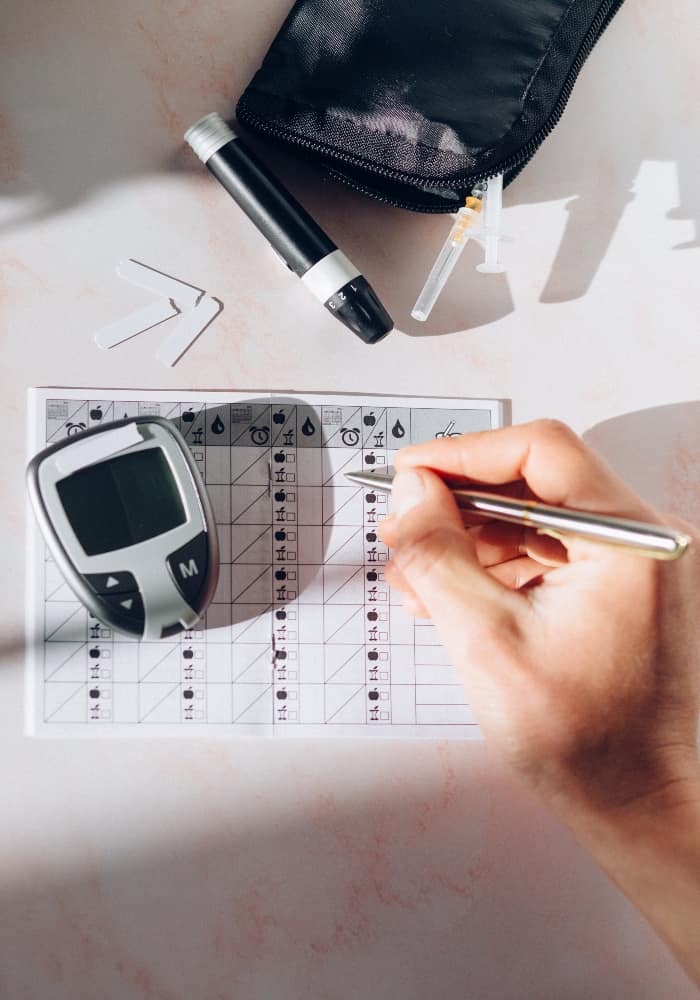Egyptian-born al-Zawahri was raised in Cairo's leafy Maadi suburb where comfortable villas are a favourite among expatriates from the Western nations he rails against.
The Egyptian who has taken the helm of al-Qaeda after Osama bin Laden did not emerge from the crowded slums of Egypt's sprawling capital a militant or develop his ideas in any religious college or seminary.
Instead, Egyptian-born Ayman al-Zawahri was raised in Cairo's leafy Maadi suburb where comfortable villas are a favourite among expatriates from the Western nations he rails against.
He studied at Cairo University and qualified as a doctor.
The son of a pharmacology professor was not unique in his generation. Many educated youngsters were outraged at the treatment of Islamists in the 1960s when Egypt veered towards a Soviet-style one-party state under socialist Gamal Abdel Nasser.
Thousands of people suspected of subversion were thrown into prison after show trials. One of the young Zawahri's heroes, Muslim Brotherhood luminary Sayyid Qutb, was executed in 1966 on charges of trying to overthrow the state.
"Zawahri is one of the many victims of the Nasser regime who had deep political grievances and a feeling of shame at Egypt's defeat by Israel in 1967. He grew up a radical," said Khalil al-Anani, an expert in Islamist movements at Durham University.
He rose to be al-Qaeda's No. 2 before taking over as leader after bin Laden was killed by US special forces at his Pakistan hideout on May 2, almost 10 years after the September 11 attacks on the United States.
An Islamist website, Ansar al-Mujahideen (Followers of the Holy Warriors) carried a statement on Thursday saying: "The general leadership of al-Qaeda group, and after the completion of consultation, announces that Sheikh Dr Ayman Zawahri, may God give him success, has assumed responsibility for command of the group."
In a June 8 eulogy for Laden, Zawahri promised to pursue attacks on the West, recalling the Saudi-born militant's threat that "you will not dream of security until we live it as a reality and until you leave the lands of the Muslims".
He called this year's Arab uprisings a disaster for Washington because, he said, they would remove Arab leaders who were the corrupt "agents of America".
He also pledged allegiance to the leader of the Afghan Taliban, Mullah Omar, calling him "Emir of the Believers".
The pledge, which repeats one made by Laden in the 1990s, was seen by analysts as an attempt to shore up al-Qaeda's alliance with the Taliban, which sheltered the Arab-led group until US attacks on Afghanistan in 2001 ended Taliban rule.
Western powers have demanded the Taliban cut all ties with al-Qaeda.
Changed man
Born in 1951 to a prominent Cairo family, Zawahri was a grandson of the grand imam of Al Azhar, one of the most important mosques in the Muslim world.
As he studied for a masters in surgery in the 1970s, Zawahri was active in a movement that later became Islamic Jihad, which aimed to expel the government and establish an Islamic state.
People who know Zawahri disagree over whether he was destined by temperament for militancy or pushed into it as a protest against the state oppression of Egyptian Islamists.
A heavy-handed Egyptian security policy designed to weaken Islamism nudged its members further towards violent action, as young men rounded up in state security sweeps revolted against what they saw as unfair treatment.
Zawahri was one of hundreds tried for links to the 1981 assassination of President Anwar Sadat, Nasser's successor. He served a three-year jail term for illegal arms possession, but was acquitted of the main charges.
"Zawahri was not given a chance to be part of politics," said his lawyer Nizar Ghorab.
"He lived during a time of great suppression of those who had religious ideas and wanted to change the political scene of oppression under Nasser and Sadat."
People who studied with Zawahri at Cairo University's Faculty of Medicine in the 1970s describe a lively young man who went to the cinema, listened to music and joked with friends.
"When he came out of prison he was a completely different person," said a doctor who studied with Zawahri and declined to be named.
Others say what tipped Zawahri into political violence was Iran's 1979 Islamic Revolution and Sadat's peace treaty with Israel the same year.
"There was an evolution in his mentality," said Anani. "People like Zawahri saw no way to achieve their goals except to changing the regime by force."
Zawahri's nephew Abdel Rahman al-Zawahri, 26, an accountant, said: "I do not think that what drove my uncle to choose the path he chose resulted from his years in prison or the torture he experienced. He is a thinker and he had an idea and ideology".
On his release, Zawahri went to Pakistan where he worked with the Red Crescent treating Islamist mujahideen guerrillas wounded in Afghanistan, which the Soviet Union invaded in 1979.
"In his childhood and as a young man he was cheerful and had a sense of humour," said Zawahri's uncle, Mahfouz Azzam.
"His years spent along the border as a war surgeon during the war in Afghanistan changed his views about how change and resistance can happen."
"Known and respected" Zawahri family
Taking over the leadership of Jihad in Egypt in 1993, Zawahri was a main figure in a violent campaign in the mid-1990s to set up a purist Islamic state, when more than 1,200 Egyptians were killed.
In 1999, an Egyptian military court sentenced Zawahri to death in absentia. By then he had swapped his comfortable suburban background for the spartan life of a holy warrior.
John Brennan, counter-terrorism adviser to US President Barack Obama, said on Tuesday that Zawahri, who was al-Qaeda's chief organiser under Laden, was believed to be living in Pakistan or Afghanistan, and was being hunted.
A doorman in the street in Cairo's Maadi district where Zawahri's brother lives said the Zawahri family owns a hotel in the neighbourhood. The family is "known and respected", he said. "They are always cheerful and sociable and very generous."
Starbucks and Costa coffee shops have become popular haunts for residents of Maadi. The shops cater for the many Americans and other expatriates who live there, selling imported Oreo biscuits, Dr Pepper drinks and microwave popcorn packets.
Many of the US expatriates work for American oil companies or at the US embassy, the largest permanently staffed US mission, testimony to US ties and a $1.3 billion-a-year military aid programme agreed after the peace deal with Israel.
Sadat signed the peace deal and his successor Hosni Mubarak built on the alliance during three decades in office that came to an end on February 11 this year in a popular uprising.
Al-Qaeda, which inveighed against Western-backed Arab autocrats, was nowhere in sight in those protests. Instead the rallies were led by youths, many with a broadly secular agenda and who used Twitter and Facebook to rally the crowds.
Zawahri's sister was among those who massed in Cairo's central Tahrir Square.
"The peaceful revolutions in the Arab world are a huge defeat for al-Qaeda and its ideas," said Durham analyst Anani.
![submenu-img]() US imposes sanctions on Chinese, Belarus firms for providing ballistic missile tech to Pakistan
US imposes sanctions on Chinese, Belarus firms for providing ballistic missile tech to Pakistan![submenu-img]() 'Don't have any comment': White House mum on reports of Israeli strikes in Iran
'Don't have any comment': White House mum on reports of Israeli strikes in Iran![submenu-img]() Yes Bank co-founder Rana Kapoor gets bail after four years in bank fraud case
Yes Bank co-founder Rana Kapoor gets bail after four years in bank fraud case![submenu-img]() Barmer Lok Sabha Polls 2024: Check key candidates, date of voting and other important details
Barmer Lok Sabha Polls 2024: Check key candidates, date of voting and other important details![submenu-img]() This star once lived in garage, earned Rs 51 as first salary; now charges Rs 5 crore per film, is worth Rs 335 crore
This star once lived in garage, earned Rs 51 as first salary; now charges Rs 5 crore per film, is worth Rs 335 crore![submenu-img]() DNA Verified: Is CAA an anti-Muslim law? Centre terms news report as 'misleading'
DNA Verified: Is CAA an anti-Muslim law? Centre terms news report as 'misleading'![submenu-img]() DNA Verified: Lok Sabha Elections 2024 to be held on April 19? Know truth behind viral message
DNA Verified: Lok Sabha Elections 2024 to be held on April 19? Know truth behind viral message![submenu-img]() DNA Verified: Modi govt giving students free laptops under 'One Student One Laptop' scheme? Know truth here
DNA Verified: Modi govt giving students free laptops under 'One Student One Laptop' scheme? Know truth here![submenu-img]() DNA Verified: Shah Rukh Khan denies reports of his role in release of India's naval officers from Qatar
DNA Verified: Shah Rukh Khan denies reports of his role in release of India's naval officers from Qatar![submenu-img]() DNA Verified: Is govt providing Rs 1.6 lakh benefit to girls under PM Ladli Laxmi Yojana? Know truth
DNA Verified: Is govt providing Rs 1.6 lakh benefit to girls under PM Ladli Laxmi Yojana? Know truth![submenu-img]() Remember Ali Haji? Aamir Khan, Kajol's son in Fanaa, who is now director, writer; here's how charming he looks now
Remember Ali Haji? Aamir Khan, Kajol's son in Fanaa, who is now director, writer; here's how charming he looks now![submenu-img]() Remember Sana Saeed? SRK's daughter in Kuch Kuch Hota Hai, here's how she looks after 26 years, she's dating..
Remember Sana Saeed? SRK's daughter in Kuch Kuch Hota Hai, here's how she looks after 26 years, she's dating..![submenu-img]() In pics: Rajinikanth, Kamal Haasan, Mani Ratnam, Suriya attend S Shankar's daughter Aishwarya's star-studded wedding
In pics: Rajinikanth, Kamal Haasan, Mani Ratnam, Suriya attend S Shankar's daughter Aishwarya's star-studded wedding![submenu-img]() In pics: Sanya Malhotra attends opening of school for neurodivergent individuals to mark World Autism Month
In pics: Sanya Malhotra attends opening of school for neurodivergent individuals to mark World Autism Month![submenu-img]() Remember Jibraan Khan? Shah Rukh's son in Kabhi Khushi Kabhie Gham, who worked in Brahmastra; here’s how he looks now
Remember Jibraan Khan? Shah Rukh's son in Kabhi Khushi Kabhie Gham, who worked in Brahmastra; here’s how he looks now![submenu-img]() DNA Explainer: What is cloud seeding which is blamed for wreaking havoc in Dubai?
DNA Explainer: What is cloud seeding which is blamed for wreaking havoc in Dubai?![submenu-img]() DNA Explainer: What is Israel's Arrow-3 defence system used to intercept Iran's missile attack?
DNA Explainer: What is Israel's Arrow-3 defence system used to intercept Iran's missile attack?![submenu-img]() DNA Explainer: How Iranian projectiles failed to breach iron-clad Israeli air defence
DNA Explainer: How Iranian projectiles failed to breach iron-clad Israeli air defence![submenu-img]() DNA Explainer: What is India's stand amid Iran-Israel conflict?
DNA Explainer: What is India's stand amid Iran-Israel conflict?![submenu-img]() DNA Explainer: Why Iran attacked Israel with hundreds of drones, missiles
DNA Explainer: Why Iran attacked Israel with hundreds of drones, missiles![submenu-img]() This star once lived in garage, earned Rs 51 as first salary; now charges Rs 5 crore per film, is worth Rs 335 crore
This star once lived in garage, earned Rs 51 as first salary; now charges Rs 5 crore per film, is worth Rs 335 crore![submenu-img]() Meet actress, who worked as cook for free food, mopped floors, one Instagram post changed her life, is now worth…
Meet actress, who worked as cook for free food, mopped floors, one Instagram post changed her life, is now worth… ![submenu-img]() UP man arrested for booking cab from Salman Khan's house under Lawrence Bishnoi's name
UP man arrested for booking cab from Salman Khan's house under Lawrence Bishnoi's name ![submenu-img]() 'Justice milega': Ankita Lokhande talks about Sushant Singh Rajput, reveals she's still connected with his family
'Justice milega': Ankita Lokhande talks about Sushant Singh Rajput, reveals she's still connected with his family![submenu-img]() Rajkummar Rao reacts to plastic surgery rumours, admits he got fillers: 'If something gives me confidence...'
Rajkummar Rao reacts to plastic surgery rumours, admits he got fillers: 'If something gives me confidence...'![submenu-img]() IPL 2024: KL Rahul, Quinton de Kock star in Lucknow Super Giants' dominating 8-wicket win over Chennai Super Kings
IPL 2024: KL Rahul, Quinton de Kock star in Lucknow Super Giants' dominating 8-wicket win over Chennai Super Kings![submenu-img]() DC vs SRH, IPL 2024: Predicted playing XI, live streaming details, weather and pitch report
DC vs SRH, IPL 2024: Predicted playing XI, live streaming details, weather and pitch report![submenu-img]() Watch: Virat Kohli's cheeky 'your wife' remark to Dinesh Karthik leaves RCB teammates in splits
Watch: Virat Kohli's cheeky 'your wife' remark to Dinesh Karthik leaves RCB teammates in splits ![submenu-img]() DC vs SRH IPL 2024 Dream11 prediction: Fantasy cricket tips for Delhi Capitals vs Sunrisers Hyderabad
DC vs SRH IPL 2024 Dream11 prediction: Fantasy cricket tips for Delhi Capitals vs Sunrisers Hyderabad![submenu-img]() 'Kohli said it's not an option, just...': KL Rahul recalls his IPL debut for RCB in 2013
'Kohli said it's not an option, just...': KL Rahul recalls his IPL debut for RCB in 2013![submenu-img]() Canada's biggest heist: Two Indian-origin men among six arrested for Rs 1300 crore cash, gold theft
Canada's biggest heist: Two Indian-origin men among six arrested for Rs 1300 crore cash, gold theft![submenu-img]() Donuru Ananya Reddy, who secured AIR 3 in UPSC CSE 2023, calls Virat Kohli her inspiration, says…
Donuru Ananya Reddy, who secured AIR 3 in UPSC CSE 2023, calls Virat Kohli her inspiration, says…![submenu-img]() Nestle getting children addicted to sugar, Cerelac contains 3 grams of sugar per serving in India but not in…
Nestle getting children addicted to sugar, Cerelac contains 3 grams of sugar per serving in India but not in…![submenu-img]() Viral video: Woman enters crowded Delhi bus wearing bikini, makes obscene gesture at passenger, watch
Viral video: Woman enters crowded Delhi bus wearing bikini, makes obscene gesture at passenger, watch![submenu-img]() This Swiss Alps wedding outshine Mukesh Ambani's son Anant Ambani's Jamnagar pre-wedding gala
This Swiss Alps wedding outshine Mukesh Ambani's son Anant Ambani's Jamnagar pre-wedding gala








































)




)
)
)
)
)
)